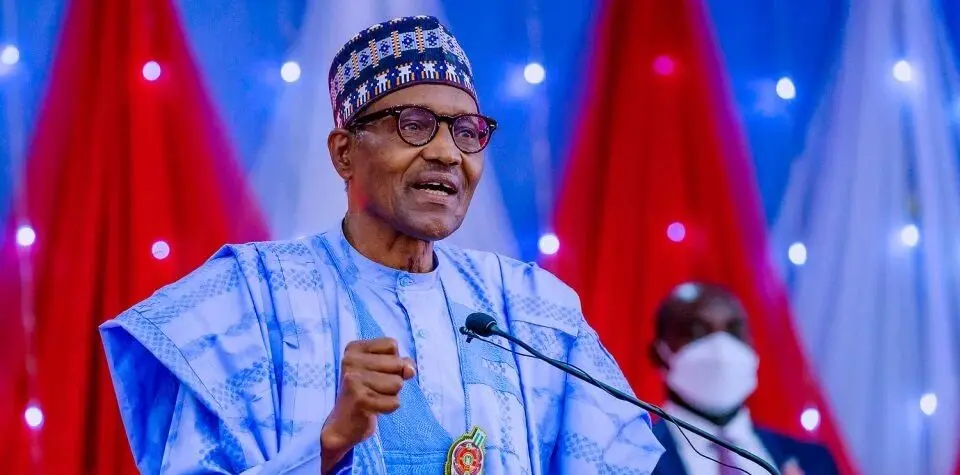President Muhammadu Buhari has launched a digital application, Eyemark, that enables citizens to monitor and evaluate capital projects, in real-time, with unimpeded access to information on stakeholders, including contract terms and contractors.
The president launched the digital application on Wednesday at the Council Chamber of the State House, Abuja.
Buhari, in a statement issued by his spokesman, Femi Adesina, said the government edged forward in promoting sustainable development by creating the digital application.
He added that the innovation would help to forestall the practice of abandoning projects as all stakeholders – communities, civil society organizations (CSOs), contractors, ministries, departments, and agencies (MDAs), as well as citizens – would continually interact on one platform.
FG: 2nd Niger Bridge will be delivered before May 2023
INEC moves critical materials as another office attacked in Imo
The president said Eyemark, which would provide a regular update on the status of capital projects across the country through bottom-up interactive processes, would be fully involved at every stage, including knowing the cost, structure, benefit and framework for maintenance after completion.
He implored all MDAs to furnish the application with the relevant data and information for all current and future projects, adding that the Eyemark application would offer an opportunity to sensitise and advertise to the world the goals and magnitude of infrastructure projects being carried out by the government.
The president charged MDAs and state governments to work together in extending the effort across all tiers of government to promote a more robust and contextual database of projects.
In his remarks, the Minister of State, Budget and National Planning, Prince Clem Agba, said citizen empowerment began with ownership, where people could freely take photographs of projects, upload them for review and also post comments, and the feedback loop would be sustained by all stakeholders.
He said the digital application would be extended to states and development partners for free.

 Join Daily Trust WhatsApp Community For Quick Access To News and Happenings Around You.
Join Daily Trust WhatsApp Community For Quick Access To News and Happenings Around You.

